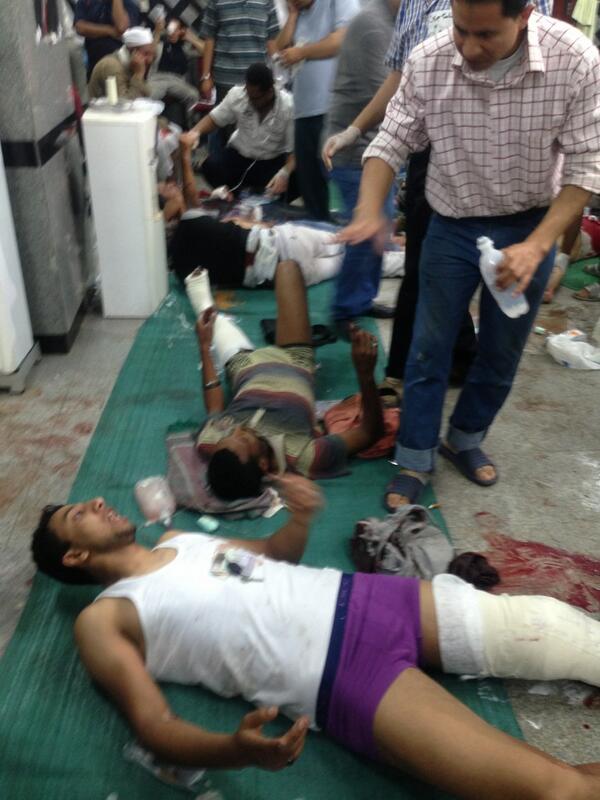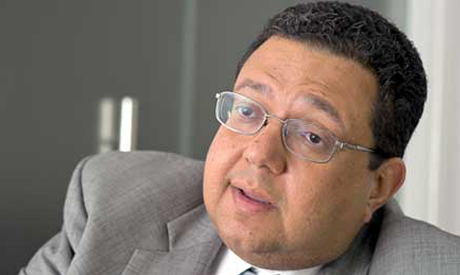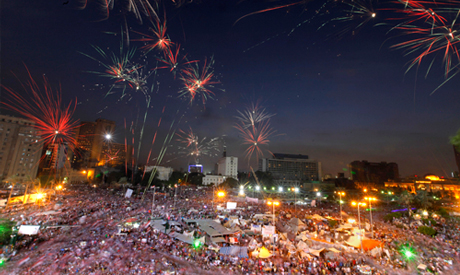
Supporters of Morsi set off fireworks during the clashes at Rabba al-Adawiya in Nasr City. (Egypt Independent).
Again demonstratios in Cairo went completely out of hand, with dozens killed and more than 100 injured, and again there were two completely different versions of what happened. The only thing that seems to be sure is that most of the victims were supporters of the Muslim Brotherhood and the deposed president Morsi. That is extremely bad news, also from a political viewpoint, as it is bound to strengthen the Brotherhood in its resolve to continue the protests while claiming it is representing 'legitimacy' in Egypt.
Violence erupted in the early hours of Saturday at the Memorial of the Unknown Soldier when police clashed with pro-Morsi protesters seeking to block the nearby 6 October Bridge. Interior ministry spokesman Hani Abdel-Latif said in on Saturday afternoon that protesters had started to block traffic, then "clashed with residents of the nearby working class distrcit of Mansheyet Nasr using live fire and birdshot, and this killed 21 people."
"The police moved to stop the clashes between the two groups and opened the road again," he added. Interior minister Mohamed Ibrahim also reiterated that the police had only used teargas in the clashes. Egypt's health ministry on Saturday morning announced that 28 dead had arrived at public hospitals, while 177 injuries had been recorded. In the afternoon, the ministry reported that 38 dead and 239 people injured had been recorded. Brotherhood figures have said the number of dead stands at at least 120.
A security source told MENA earlier that the police did not use live fire against protesters and said they only used teargas to disperse the crowds.
Meanwhile, the National Alliance to Support Legitimacy, a pro-Morsi coalition of mainly Islamist parties led by the Muslim Brotherhood, issued a statement describing what happened as a "massacre." In its account, it said that as the number of protesters at Rabaa Al-Adawiya increased, many moved through nearby roads. The statement claimed that police fired teargas at protesters and then started firing birdshot and live rounds. The alliance condemned the violence and vowed that it will continue its sit-in at Rabaa Al-Adawiya.
For weeks, thousands of pro-Morsi protesters have been staging a sit-in near Rabaa Al-Adawyia Mosque and another at Giza's Al-Nahda Square in front of Cairo University. They have also been organising marches across Egypt to demand the reinstatement of Morsi as president. The Muslim Brotherhood, from which Morsi hails, organised mass protests Friday in an attempt to counterbalance mass demonstrations called for by army chief Abdel-Fattah El-Sisi, aimed at providing the army and the police with "mandate to deal with violence and potential terrorism." Responding to El-Sisi's call, millions hit the streets across the country Friday, chanting against Morsi and the Muslim Brotherhood and in support of the Egyptian army.
Meanwhile, the Ambulance Authority reported Friday that six men were killed in clashes in Alexandria as Egypt witnessed a day of protests in response to the Armed Forces Chief Abdel Fattah al-Sisi's call for people to take to the streets. The men were killed as supporters of Morsi clashed with their opponents near the Qaed Ibrahim Mosque in central Alexandria. According to hospital authorities cited by the Middle East News Agency, dozens were injured in the clashes with birdshot and live ammunition. Eyewitnesses said Morsi's supporters kept some protesters from the other camp hostage inside the mosque, and the families of the hostages angrily surrounded the mosque.

.jpg)


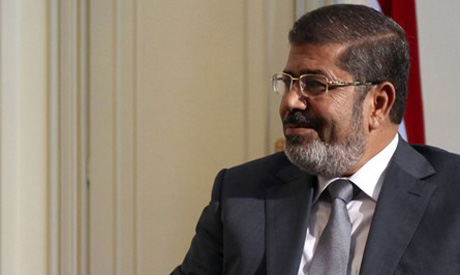
 Syria's
Kurds are planning to create a temporary autonomous government to
administer Kurdish regions in the north of the war-torn country, Kurdish
officials told French press agency
Syria's
Kurds are planning to create a temporary autonomous government to
administer Kurdish regions in the north of the war-torn country, Kurdish
officials told French press agency  The town of Tel Abyad on the Turkish border was deserted on Sunday 21 July.
The town of Tel Abyad on the Turkish border was deserted on Sunday 21 July. 




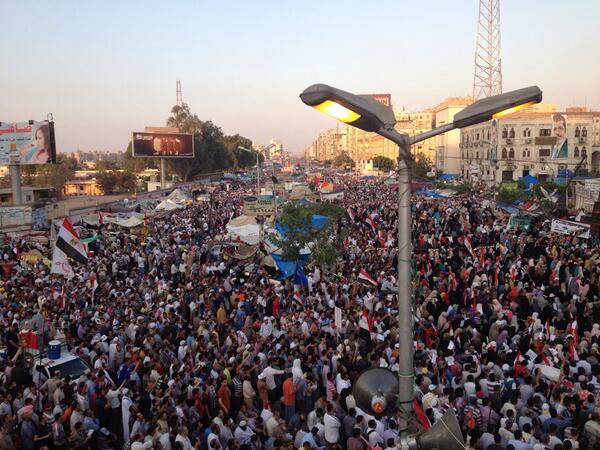
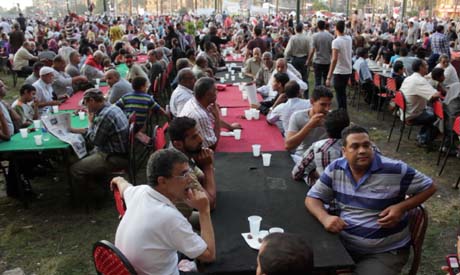
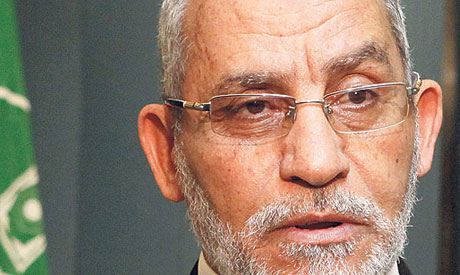
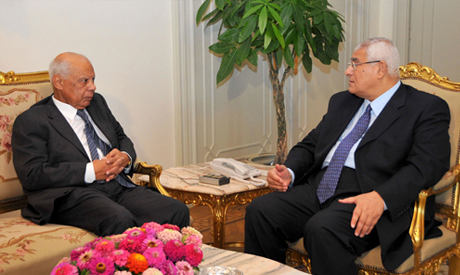
 At least 53 people were wounded after a bomb exploded Tuesday morning
in a parking lot in the densely-populated area of the Shiite southern suburb of Bierut, Dahiyeh. Hizbollah's Al-Manar television station said the explosion was from a car rigged
with explosives stationed in a public parking lot of the Islamic Coop
supermarket. The blast came on a busy shopping day on the eve of Ramadan. At least a dozen cars in the
parking lot caught fire.
At least 53 people were wounded after a bomb exploded Tuesday morning
in a parking lot in the densely-populated area of the Shiite southern suburb of Bierut, Dahiyeh. Hizbollah's Al-Manar television station said the explosion was from a car rigged
with explosives stationed in a public parking lot of the Islamic Coop
supermarket. The blast came on a busy shopping day on the eve of Ramadan. At least a dozen cars in the
parking lot caught fire. 
